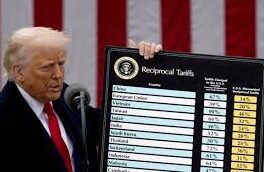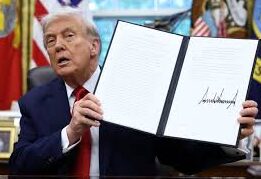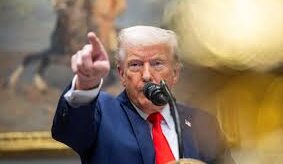The U.S. Supreme Court will soon weigh in on whether former President Donald Trump had the authority to impose sweeping global tariffs, a decision that could shake U.S. trade policy and cost billions of dollars.
On Tuesday, the court said it would review lower court rulings that found Trump lacked the legal power to enforce the tariffs under the International Emergency Economic Powers Act (IEEPA). Oral arguments are set for the first week of November.
This is the biggest test yet of Trump’s presidential powers and one of his signature economic policies. If the court rules against him, the U.S. could be forced to return billions collected in import taxes.
Trump used IEEPA to slap tariffs of 10 to 50 percent on dozens of trading partners, including China, Mexico, and Canada. While presidents have long relied on the 1977 law in foreign policy crises, Trump was the first to stretch it for broad tariffs, arguing that trade imbalances threatened U.S. national security.
For now, the tariffs remain in place, but a federal appeals court ruled last month that Trump overstepped his authority. The court noted that the Constitution gives Congress, not the president, the power to levy taxes and duties.
Trump blasted the ruling in a post on Truth Social, warning that if it stood, “this decision will literally destroy the United States.”
The legal challenge was brought by a group of small businesses and a dozen states, who argued that Trump’s use of IEEPA was unlawful.
If the Supreme Court sides with the lower courts, it could unleash chaos in trade, raising questions about whether the U.S. must refund billions to foreign governments and companies. Ongoing trade deals with countries like Japan and the U.K. could also be thrown into uncertainty.
Shortly after the Supreme Court’s announcement, Trump said on Truth Social that his administration was still negotiating trade with India. “I’m confident we will have no trouble reaching a successful outcome,” he wrote.
The Trump administration also has other legal avenues for tariffs, though they are narrower in scope. For example, tariffs on steel, aluminum, and cars were imposed under a different law and are not part of this case.






